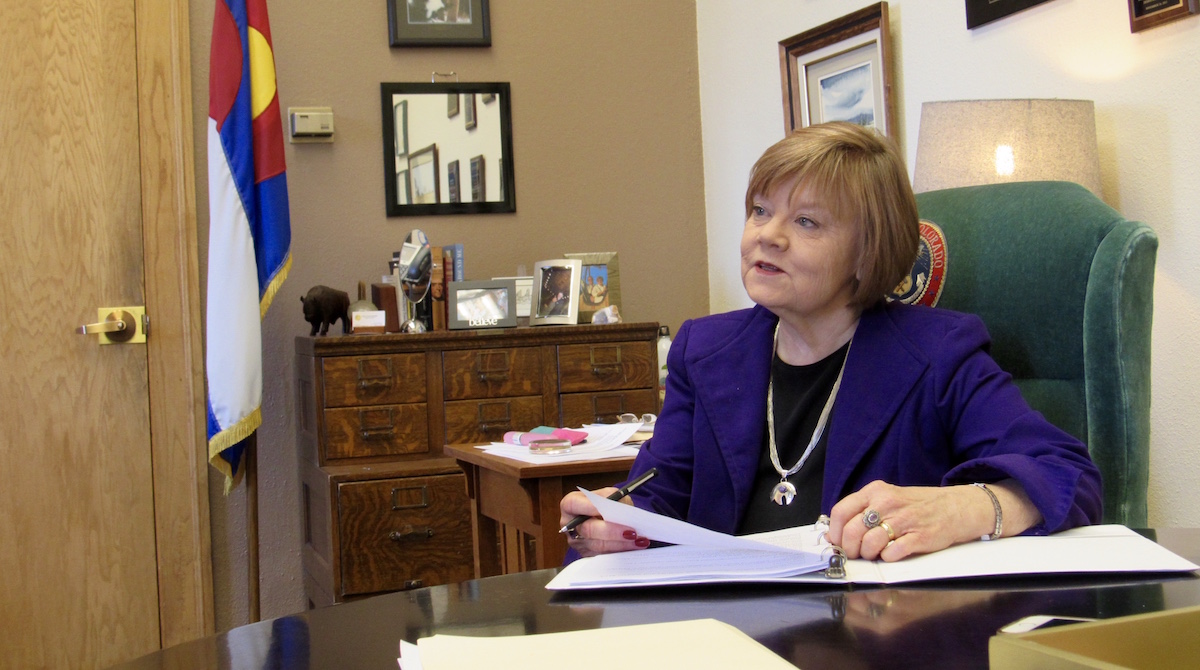The Local newsletter is your free, daily guide to life in Colorado. For locals, by locals.
With some exceptions, Colorado’s state legislators have usually been able to avoid the ideological gridlock that’s infected our national Congress. This was true even in 2015, when the statehouse had split control for the first time since 2012.
As State Senate President Bill Cadman (R-Colorado Springs) told 5280 last fall, the fact that “98 percent of what we [Colorado lawmakers] do isn’t partisan” is a point of pride for everyone who works at the Capitol.

But as the 2016 legislative session begins on Wednesday, the normally collegial vibe may be a little less amiable. If so, it will be at least partly because of what happened on January 6. That’s when Cadman hastily called a press conference, cramming a gaggle of reporters into his office, where he revealed that his people had received a memo from the Office of Legislative Legal Services (OLLS), suggesting that the proposal to exempt the current hospital provider fee program from the Colorado’s Taxpayer Bill of Rights’ (TABOR) revenue cap is unconstitutional. Details of that press conference, the memo, and what it argues about hospital provider fees and their relationship to TABOR are here and here. The upshot of what happened on the 6th is that we might see a 2016 legislative session that’s more partisan and contentious than usual.
On Friday, January 8, Speaker of the House Dickey Lee Hullinghorst [D-Boulder] sat down with 5280 to defend her party’s position on this matter, and to look ahead at the year. As of that day, she still hadn’t spoken directly with Cadman about the memo in question, but she insists that the two chamber leaders have a good working relationship, and that she and her colleagues weren’t trying to hide anything in their debates about what to do with hospital provider fees. “What happened with [Cadman’s press conference] was a huge surprise to me,” she says. “I was assured by the Senate president and the majority leader [Mark Scheffel, R-Douglas County] that we’d continue to talk to find a solution to their great reticence to do this because they know the extent of the damage we’re going to incur if we have to budget with the TABOR cap where it’s at now.”
Hullinghorst says the legal issues around changing the hospital provider fees were “broadly discussed” this past year among the Democrats and with the governor’s and attorney general’s offices, and that she assumed the state GOP, despite its resistance to changing the fees, was aware of all aspects of it. “I don’t sponsor bills that I think are unconstitutional, so I thought we were fine,” she says. “There was no secret as far as I was concerned, but that seems to be what set off Senator Cadman. To be perfectly honest, I felt betrayed that they hadn’t at least come over and said, ‘We have this memo and we think you’re trying to hide something.’ We weren’t.” She added that state Republicans seem to be cherry-picking OLLS memos they agree with, because a previous guideline from the office said that hospital provider fees could be considered exempt from TABOR restrictions.
Regardless of how this shakes out, it kicks off the new session more contentiously than Coloradans have come to expect. There’s also emerging evidence that an informal caucus of state conservatives might be forming within the GOP, mimicking the uncompromising wing of national Tea Party Republicans. So we could witness more intransigence this year on issues such as guns, fracking, the Affordable Care Act’s operations in Colorado, and reproductive rights—none of which Hullinghorst is planning to buckle on.
She says she expects the GOP to try and roll back or repeal the limits on gun magazine sizes—“That’s not going to happen under my watch; we’re not going backward on those kinds of things.” And she’s awaiting this year’s version of the fetal homicide bill, which detractors say treads too closely to the “personhood” ballot initiatives that state voters have soundly defeated three times. “[Senator Cadman] and I absolutely disagree on this,” Hullinghorst says. “[The murder] of pregnant women should be a serious crime, but unless you want to define a fetus as a human being you cannot define that as murder without affecting a lot of very important rights women have.”
As Colorado continues its increasingly prominent role in this presidential election year as a bellwether swing state, all our lawmakers will be devoted to, as Hullinghorst says, “making sure that everyone in this wonderful and beautiful state is getting a fair shot at enjoying it.” But with our national political landscape more fractured than ever, one primary task for Hullinghorst, Cadman, and their colleagues will be to ensure that the widespread big-stage political negativity doesn’t bring storm clouds into sunny Colorado.








